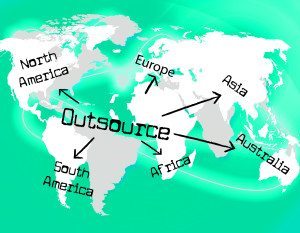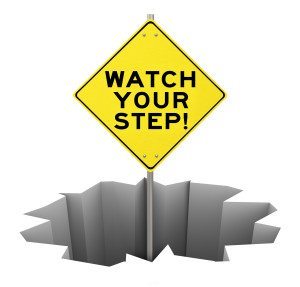 Many IP lawyers engage other lawyers or nonlawyers as independent contractors, directly or through intermediaries, to provide various legal and nonlegal support services. The outsourcing market, often referred to as the “legal process outsourcing” market or “professional employer organization” market, is a multi-billion dollar industry.
Many IP lawyers engage other lawyers or nonlawyers as independent contractors, directly or through intermediaries, to provide various legal and nonlegal support services. The outsourcing market, often referred to as the “legal process outsourcing” market or “professional employer organization” market, is a multi-billion dollar industry.
While there is nothing per se unethical about a lawyer outsourcing legal and non-legal services, ethical landmines abound. Lawyers, therefore, must proceed with extreme caution to ensure that any outsourced legal services are performed consistent with the lawyer’s ethical and legal duties. This article addresses a few of the more common issues implicated by IP outsourcing and some suggestions for mitigating the risk associated with legal outsourcing.
Outsourcing in the Patent Industry
Patent services are among the most frequently outsourced, however, a major deterrence for many patent firms may stem from a 2008 Notice from the USPTO discussing the processing of patent applications overseas. In the Notice, the USPTO warned the offshoring of technical data necessary to prepare a U.S. patent application is not covered by a foreign filing license issued by the USPTO, and additional licensing might be required. The Office cautioned, “[a]pplicants who are considering exporting subject matter abroad for the preparation of patent applications to be filed in the United States should contact the Bureau of Industry and Security (BIS) at the Department of Commerce for the appropriate clearances.” The USPTO clarified a foreign filing license alone is insufficient to authorize exporting subject matter abroad for the purpose of patent applications ultimately filed in the U.S.
Patent applications are not the only legal patent services outsourced. Services include, but are by no means limited to, patent landscape studies, freedom to operate studies, patent portfolio analysis, litigation support services, invalidity/validity searches, and other administrative functions. Similar types of services for trademarks also are outsourced. As one commentator confirmed, companies all along the metaphorical IP food chain utilize outsourcing companies, including academic institutions, investors, patent licensing and management companies, start-up companies, individual inventors, and technology companies.
Client Consent and Confidentiality
Before engaging the services of an outsourcing entity to assist in a client matter, it may be necessary for the lawyer to provide information concerning the outsourcing relationship to the client, and perhaps to obtain the client’s informed consent to the engagement of lawyers or nonlawyers who are not directly associated with the lawyer or law firm that the client retained. In its Formal Opinion 88-356, the ABA opined that when a lawyer engaged the services of a temporary lawyer, a form of outsourcing, an obligation to advise the client of that fact and to seek the client’s consent would arise if the temporary lawyer was to perform independent work for the client without the close supervision of the hiring lawyer or another lawyer associated with her firm. The ABA concluded that clients are entitled to know who or what entity is representing them, and thus could veto the lawyer’s use of a temporary lawyer.
ABA Formal Opinion 08-541 addressed the ethical issues of outsourcing and found that “where the relationship between the firm and the individuals performing the services is attenuated, as in a typical outsourcing relationship, no information protected by ABA Model Rule 1.6, the duty of confidentiality, may be revealed without the client’s informed consent.”
 Outsourcing sparks the inevitable transfer of confidential client information. Attorneys always have a duty to protect client information and ensure the information is not accessed by an unauthorized individual. USPTO Rule 37 C.F.R. 11.106, which tracks ABA Model Rule 1.6, states, “a practitioner shall not reveal information relating to the representation of a client unless the client gives informed consent, the disclosure is impliedly authorized in order to carry out the representation, [or the disclosure is otherwise permitted under the rules].”
Outsourcing sparks the inevitable transfer of confidential client information. Attorneys always have a duty to protect client information and ensure the information is not accessed by an unauthorized individual. USPTO Rule 37 C.F.R. 11.106, which tracks ABA Model Rule 1.6, states, “a practitioner shall not reveal information relating to the representation of a client unless the client gives informed consent, the disclosure is impliedly authorized in order to carry out the representation, [or the disclosure is otherwise permitted under the rules].”
Firms must remember an outsourcing relationship typically breaks the chain between the law firm and the client, and accordingly the USPTO implied authorization Rule 11.106(a) “does not extend to outside entities or to individuals over whom the firm lacks effective supervision and control.” For instance, in the patent industry,one commentator observes that outsourcing may dissect communications and result in less protection for communications relating to the preparation and prosecution of patent applications. Proper precautions must be taken to protect such exposed communications.
Two major reasons, among others, explain why outsourcing may implicate Rule 11.106: (1) in foreign countries, discussing business venture specifics outside of the office may be common; and (2) it is often difficult to maintain secured information technology networks.
Fee-Splitting And Billing For Outsourced Legal Services
Another area of concern is how much the client is billed. The fees charged by the outsourcing lawyer must be reasonable and otherwise comply with the requirements of ABA Model Rule 1.5. In ABA Formal Opinion No. 00-420, the ABA concluded that a law firm that engaged a contract lawyer could add a surcharge to the cost paid by the billing lawyer provided the total charge represented a reasonable fee for the services provided to the client. This is not substantively different from the manner in which a conventional law firm bills for the services of its lawyers. When outsourcing, the restraint is the overarching requirement that the fee charged for the services not be unreasonable.
 If the outsourcing lawyer or law firm decides to pass those costs through to the client as a disbursement, however, no markup is permitted. In the absence of an agreement with the client authorizing a greater charge, the lawyer may bill the client only its actual cost plus a reasonable allocation of associated overhead, such as the amount the lawyer spent on any office space, support staff, equipment, and supplies for the individuals under contract. The analysis is no different for other outsourced legal services, except that the overhead costs associated with the provision of such services may be minimal or nonexistent if and to the extent that the outsourced work is performed off-site without the need for infrastructural support.
If the outsourcing lawyer or law firm decides to pass those costs through to the client as a disbursement, however, no markup is permitted. In the absence of an agreement with the client authorizing a greater charge, the lawyer may bill the client only its actual cost plus a reasonable allocation of associated overhead, such as the amount the lawyer spent on any office space, support staff, equipment, and supplies for the individuals under contract. The analysis is no different for other outsourced legal services, except that the overhead costs associated with the provision of such services may be minimal or nonexistent if and to the extent that the outsourced work is performed off-site without the need for infrastructural support.
When Does Legal Outsourcing Become Fee Splitting?
According to a 2008 Formal Opinion issued by the Colorado Bar Association Ethics Committee, outsourcing will not constitute fee splitting so long as, 1) the fee is paid to the outside personnel regardless of the amount charged by the outsourcing attorney to his or client; and 2) the fee is paid to the outside personnel regardless of whether the outsourcing attorney is paid by his or her client. The moment there is a link between the amount or the payment of one fee and another, fee splitting is occurring and requires adherence to Rule 1.5.
The Colorado opinion states that even though attorneys have the option to split fees with outside attorneys (as long as the client consents and the total fee is reasonable), attorneys may not split fees with outside non-attorneys, for this violates Rule 5.4 of both the ABA Model Rules and the Colorado Rules. Since outsourcing is a broad industry that features attorneys as well as non-attorneys, it is critical to bear Rule 5.4 in mind when establishing an outsourcing fee arrangement.
Duty of Competence
The outsourcing lawyer also must comply with the ethical duty of competence. This requires the outsourcing lawyer to utilize the legal knowledge, skill, thoroughness and preparation reasonably necessary for the representation as required by ABA Model Rule of Professional Conduct 1.1 or its USPTO equivalent, 37 C.F.R. § 11.101.
There is no unique blueprint for the provision of competent legal services. Different lawyers may perform the same tasks through different means, all with the necessary “legal knowledge, skill, thoroughness and preparation.” While ABA Model Rule 1.1 does not require that tasks be accomplished in any special way, it remains the ethical duty of the lawyer to satisfy their duty to render legal services with competence.
Quality concerns are particularly relevant for patent firms outsourcing prior art searches, because although the outsourced model might be more cost and time-effective, some writers note that, “it is questionable whether such a modest productivity gain is worth the risk of potentially undermining the presumption of patent validity by granting patents based on substandard searches performed by contractors whose primary motivation is to make money, rather than serve the public interest.” Looking beyond prior art searches, quality control is always an ethical concern, as attorneys have a continuous duty to maintain competence and diligence in any scope of representation. At a bare minimum, firms and attorneys must deliver “reasonably necessary” services to help reduce the risk of malpractice liability. To remain competitive, many firms aim to offer services far beyond the bare minimum quality requirements. Thus, at every stage of the patent outsourcing process, extra precautions should be put in place to ensure that quality is not compromised by outsourcing.
Unauthorized Practice of Law and Supervisory Liability
 Ethical issues also can arise from a lack of management, control, and oversight typically associated with employing outsourcing companies abroad. With a proper understanding of when and how the ethical rules will be implicated, it will be much easier for firms and attorneys to avoid ethical liability and proceed with outsourcing plans.
Ethical issues also can arise from a lack of management, control, and oversight typically associated with employing outsourcing companies abroad. With a proper understanding of when and how the ethical rules will be implicated, it will be much easier for firms and attorneys to avoid ethical liability and proceed with outsourcing plans.
A frequent issue when dealing with both outsourced non-attorneys and in-house non-attorneys is the unauthorized practice of law. Outsourced non-attorneys located overseas are considered “non-practitioners” covered by 37 C.F.R. § 11.503. Under Rule 11.503, attorneys must treat the outsourced non-attorneys as non-lawyer assistants would be treated in the U.S. USPTO Rule 11.503 states:
With respect to a non-practitioner assistant employed or retained by or associated with a practitioner: (a) A practitioner who is a partner, and a practitioner who individually or together with other practitioners possesses comparable managerial authority in a law firm shall make reasonable efforts to ensure that the firm has in effect measures giving reasonable assurance that the person’s conduct is compatible with the professional obligations of the practitioner.
USPTO Rule 11.503 also charges partners or those of comparable managerial authority with liability if they “know[] of the [unethical] conduct at a time when its consequences can be avoided or mitigated but fail[] to take reasonable remedial action.” Adhering to Rule 11.503 can be difficult enough within a law firm and even more difficult when dealing with non-practitioners detached from the internal office environment. Often the lines may become blurred between administrative functions and legal functions.
Limiting Ethical Risks when Outsourcing
Outsourcing firms should proceed with caution when choosing a particular outsourcing structure or relationship. At the root of many ethical problems is miscommunication; accordingly, firms should remain overly and properly informed when selecting an outsourcing company and throughout the entire outsourcing process. Firms should maintain communication and control over the outsourced work. Although maintaining both elements may be difficult given the obvious distance and cultural barriers to many outsourcing companies abroad, firms should strive to maintain as much communication and control as feasibly possible.
An outsourcing firm or lawyer must recognize and minimize the risk that any outside service provider reveal client confidential information to adverse parties or to others who are not entitled to access. Written confidentiality agreements are, therefore, strongly advisable in outsourcing relationships. Likewise, to minimize the risk of potentially wrongful disclosure, the outsourcing lawyer should verify that the outside service provider does not also do work for adversaries of their clients on the same or substantially related matters; in such an instance, the outsourcing lawyer should consider selecting a different provider to avoid the risk of an alleged conflict of interest.
 Aside from a firm’s relationship with an outsourcing company, a firm should also implement risk-management procedures for its client relationships. Firms should obtain, or attempt to obtain, signed consent informing the client of the outsourcing relationship. Communication and transparency are crucial, as “a client’s consent to outsourcing can only be informed if the client receives sufficient information about the risks of outsourcing and the available alternatives.” When discussing an outsourcing relationship with a client, an issue could arise if the client requests an affirmation stating the firm will defend the client should a dispute arise in the scope of the outsourcing arrangement.
Aside from a firm’s relationship with an outsourcing company, a firm should also implement risk-management procedures for its client relationships. Firms should obtain, or attempt to obtain, signed consent informing the client of the outsourcing relationship. Communication and transparency are crucial, as “a client’s consent to outsourcing can only be informed if the client receives sufficient information about the risks of outsourcing and the available alternatives.” When discussing an outsourcing relationship with a client, an issue could arise if the client requests an affirmation stating the firm will defend the client should a dispute arise in the scope of the outsourcing arrangement.
Firms should also address any lingering fears related to the USPTO’s 2008 Notice discussed above. As one commentator remarks, only unpublished information is subject to U.S. Export Controls, and only items under the “Commerce Control List” must meet the following requirements: (1) conduct an export clearance check/invention classification before sending invention disclosures overseas; (2) seek the necessary clearance from the BIS if the export clearance check/invention classification reveals that the subject matter is a controlled item. However, information in the public domain (published information) is not restricted by U.S. export controls, and “this means that many patent services and documentation relating to intellectual property can be freely outsourced.”
In March 2015, the Association of the Bar of the City of New York Committee on Professional Ethics released four main “rules” for outsourcing law firms to follow: (1) Do not allow professional employer organizations (PEOs) to interfere with a lawyer’s duty to exercise independent professional judgment and supervise lawyers and nonlawyers; (2) do not allow the PEO to access confidential client information; (3) comply with rules regarding conflicts of interest; and (4) do not break rules on sharing fees with nonlawyers when compensating PEO. Moreover, maintaining a third-party vendor relationship with an outsourcing company, as opposed to a partnership relationship, may also help to minimize risk and liability for the outsourcing firm or lawyer.
Conclusion
In today’s global economy, outsourcing can offer a variety of tangible and intangible benefits for intellectual property firms and lawyers. Firms should contemplate their own outsourcing plans catered toward specific client and market demands. With proper safeguards in place, IP firms and attorneys can minimize exposure to ethical dilemmas associated with outsourcing legal patent services overseas.
When choosing to outsource IP legal services, U.S. counsel should carefully vet the proposed provider. Issues that counsel should address before engaging an outsider should include, for example, the skill and experience level of the individuals utilized by the outsourcing firms to perform the task, measures taken by the service provider to ensure confidentiality, and references from multiple reliable sources. Firms should also obtain informed written client consent before entrusting any part of a client’s legal work to a third-party, and should ensure that the overall fee is reasonable and that the firm does not split fees with any third-party without client consent.
Outsourcing is clearly here to stay, as the outsourcing market in the U.S. has consistently grown over the past several years in proportion to the client demand for this business model. Firms ignoring this reality take the risk that their clients will follow the leads of other clients who have personally outsourced legal work to entire firms or outsourcing companies abroad. Indeed, some U.S. companies have moved entire in-house legal departments abroad over the past several years. A firm can achieve an optimal competitive advantage with outsourcing by implementing a parallel ethics and risk management program. With a better understanding of the ethical rules and how outsourcing relates to those rules, patent attorneys and firms will be better equipped to execute their own outsourcing plans.
N.B. My gratitude to Katherine Bloom, a rising 3L at the University of Baltimore School of Law, for her invaluable contribution to this piece.
Despite the need for monitoring to guarantee a successful agreement, it is reasonable to conclude that outsourcing provides several benefits to IP specialists and organizations. The foregoing ethical issues may be mitigated by careful planning and risk management, while the advantages of outsourcing are more significant than ever in a global economy focused on innovation. The outsourcing industry is booming, and IP businesses and attorneys who want to stay relevant and adaptable in today’s market should explore it.
I agree that many practitioners outsource and the industry is definitely booming. Still, there are many good reasons for applying a cautious approach to ensure that the outsource provider is competent and they are being appropriately supervised by the practitioner.
Registering a trademark in the UK is a crucial step for any business to protect its brand identity and reputation. It is essential to conduct a thorough trademark search, choose the appropriate class(es), and file a complete and accurate application to ensure that your trademark registration process goes smoothly. If you encounter any difficulties or need assistance, you can always consult with a trademark attorney who can guide you through the process and help protect your business’s valuable assets.